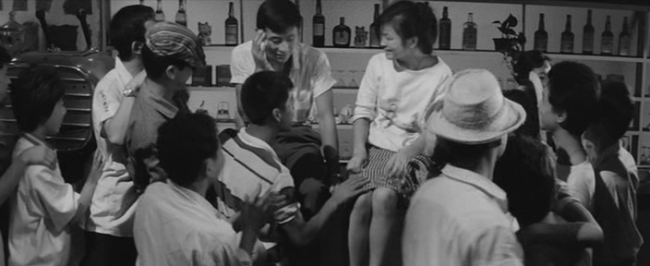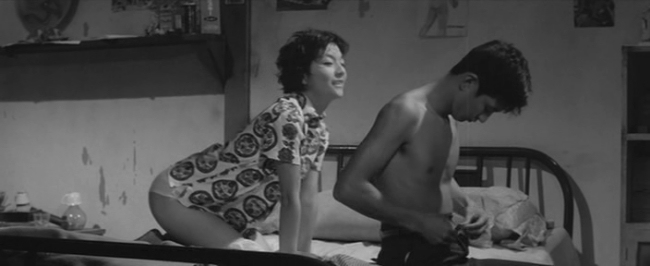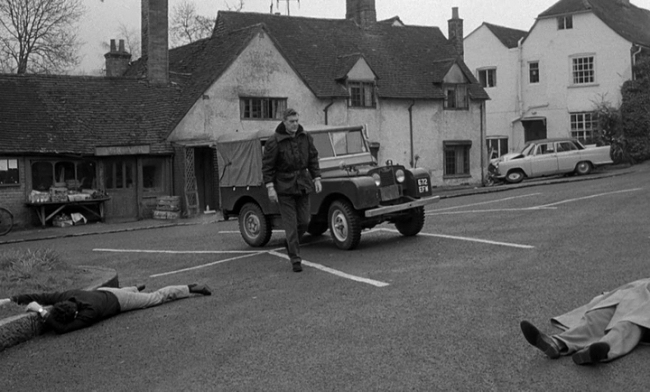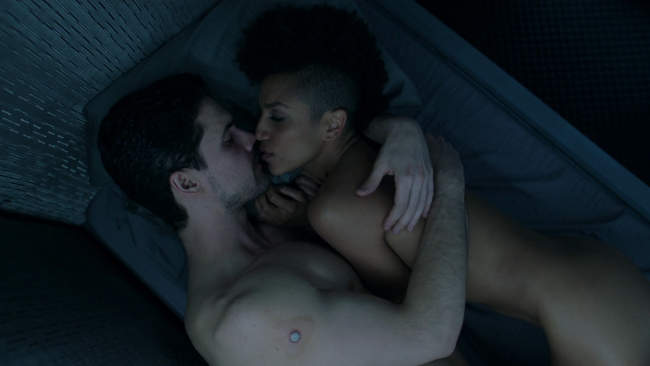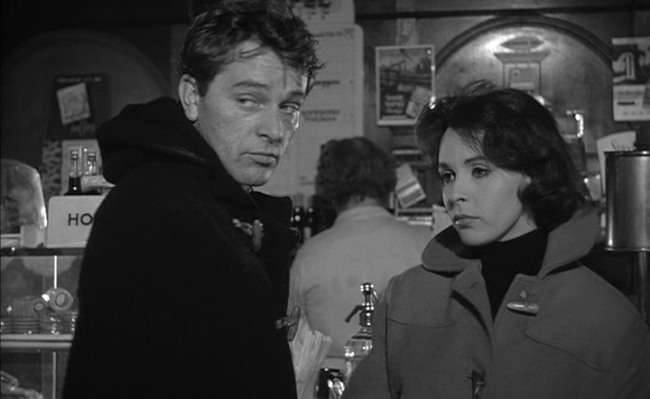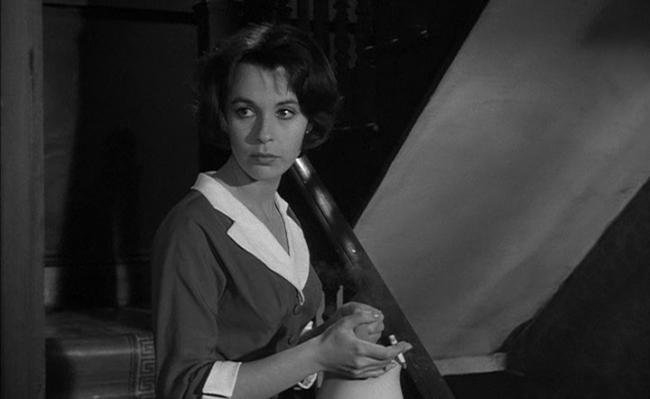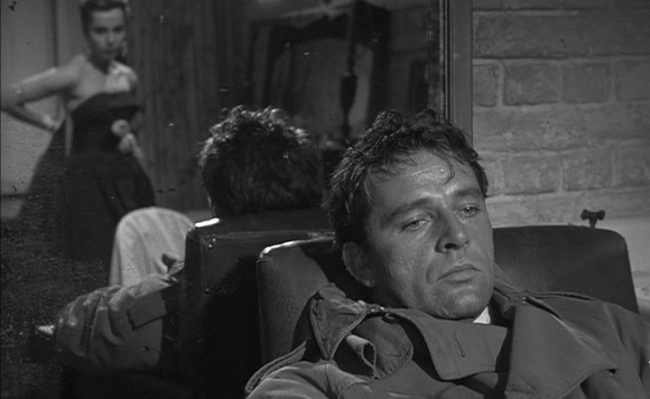
When Beat culture came to Britain it probably looked nothing like 1960's Beat Girl. Slightly more upscale than one of Ed Wood's issue films, this one began development as an exploitation film about strippers but somewhere along the way it was decided it was going to pretend to have a serious view on the post war youth counterculture. The writing is terrible, its insights completely superficial, but it does have a nice cast, including David Farrar and Christopher Lee. The star of the film, Gillian Hills, would later become a pop star in France and make some appearances in much better films than this.

A very young and skinny Oliver Reed also has a tiny role, seen here dancing with Jennifer (Hills). He's among the group of miscreants she hangs out with at the coffee bar where another boy "improvises" Elvis Presley knock-off songs. There's some discussion about kicks and World War II that sound like they came from a fifty year old Martian who read a fifteen page description of the Beats. Two of them commiserate over imagining their mothers hiding in bomb shelters. The screenwriter presumably felt the psychological issues the Beats were dealing with had entirely to do with the thought of their parents getting hurt.

The movie opens with Jennifer's father, Paul (Farrar), who's on his way home on a train with his twenty four year old new French wife, Nichole (Noelle Adam). They seem like a nice enough couple and Paul tells Nichole about his anxieties regarding his wayward daughter. When the three are in a room together, the film gives Jennifer some points by giving Paul one really obnoxious character trait to justify the girl's otherwise random surliness.

He starts waxing eloquent about this city he's designed. "You know, psychologists think that most human neuroses come from too much contact with other humans," is the dubious motive played completely straight he offers to Nichole. "I call it 'City 2000'. Grime, filth, poverty, noise, hustle, and bustle--these things would be unknown. An almost silent place. Soundproofed with the use of flying bevelled walls of concrete which also serve to cut wind and rain." I'd say he was written absurdly over the top but judging from how new parts of cities have been put together over the decades since then the film seems prophetic in this regard.

Nichole tries to make friends with Jennifer with the usual "young step mom" plot tension. When Jennifer finds out Nichole may have been a stripper--and Paul doesn't know--the movie starts to pick up steam with its real focus. Jennifer manages to talk her way into the strip club across from the coffee bar despite being underage. Christina Aguilera recently claimed to have invented twerking but I'd say this lady arguably has a claim:

We see a few lovely girls on stage whose dancing talents are well above the divey strip club this is supposed to be. They strip down to pasties before Christopher Lee finally shows up as the sleazy proprietor who tries to enlist Jennifer even after finding out she's underaged.

And Hills really was underaged, she was sixteen--unusual for a film from this era, Jennifer is a teenager played by a teenager. Which explains why in a later scene, when she strips for her friends, there's a body double. Though the double doesn't strip past her bra and panties and we see Hills in her underwear in an earlier scene. What's even stranger is the double is extremely obvious; she has a completely different hairstyle.

In this BFI interview from two years ago Hills talks about taking her clothes off for the famous scene in Antonioni's Blow-Up a few years later, which was followed by her taking part in the vigorous menage a trois in A Clockwork Orange.
When I talked to Antonioni, at first I had no inkling he’d ever use me; it was just a lovely chat with this wonderfully talented person. When he offered me the role, at first I turned it down, I just didn’t think I could undress. But then I realised I’d just turned 21 and I could do whatever the hell I wanted. I had to call up his secretary and get her to intercept the letter.

The interviewer says Hills in Beat Girl was "the first believable teenager on British screens." Which makes me wonder if he's ever seen Brighton Rock. Hills doesn't exactly give a bad performance but Steve McQueen was a more believable teenager in The Blob.
















